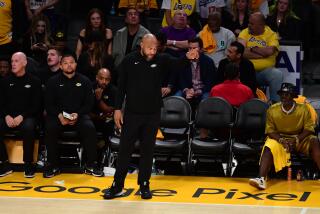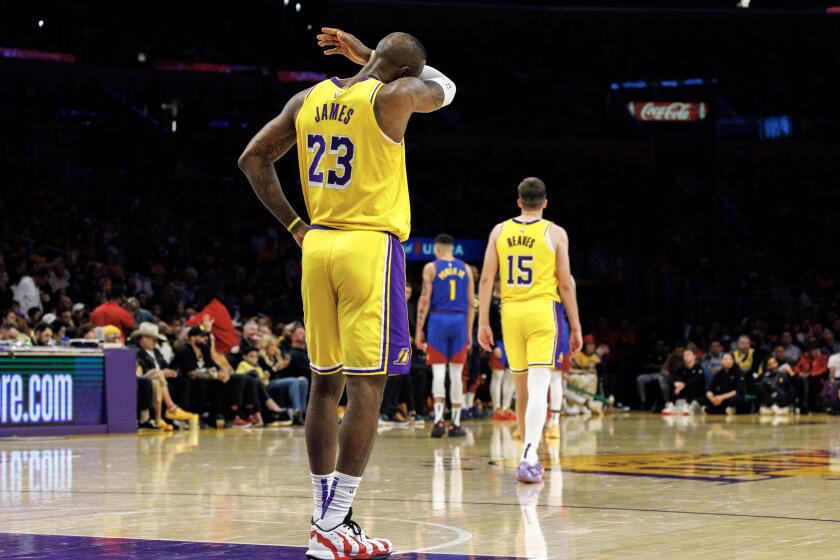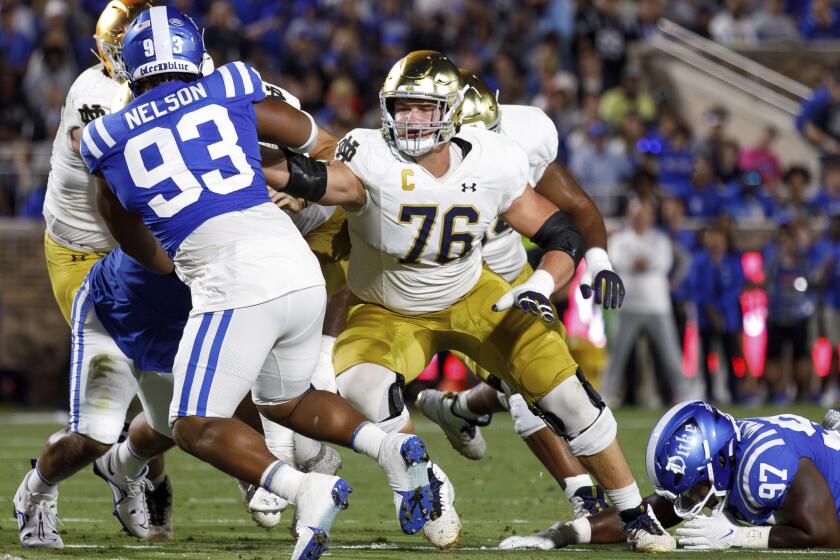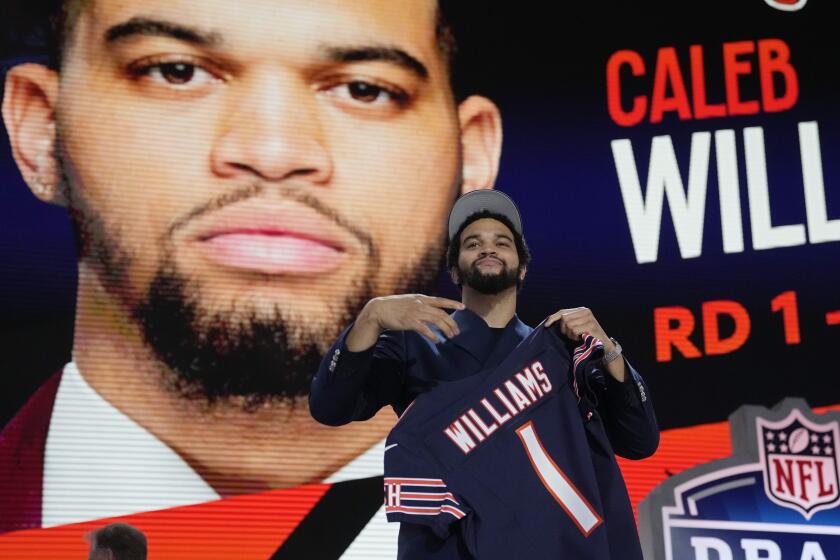Japanese Fans Give Baseball Star a Free Pass
They still worship baseball superstar Hideki Matsui in Japan.
Even though he now crushes his home runs thousands of miles away as a New York Yankee, Matsui remains a ubiquitous presence here. His face appears on posters and TV pushing laptop computers, beer and other goods. His love life makes news. And though he’s been gone for three seasons, Japanese fans still watch Matsui take his licks by tuning in to live TV broadcasts of Yankee night games that are shown here just after breakfast.
Japan has been very loyal to Hideki Matsui. But now Matsui has said no to Japan.
After weeks of speculation, the outfielder said late last month that he would not represent his country in the inaugural World Baseball Classic to be held in the U.S., Puerto Rico and Japan in March. Officials with the Classic hope to field the best players from the best baseball-playing nations, a chance to present the sport as more than just an American pastime.
But Matsui said he wanted to concentrate on spring training for the upcoming season with the Yankees, with whom he just signed a four-year, $55-million contract.
“The reason I decided to go to the United States was to try and become a world champion with the Yankees and I fear that chasing two goals might get in the way of that dream,” Matsui said in a statement to Japanese fans.
One of Japan’s biggest sports idols choosing to practice with his American club instead of playing for pride and country?
As former Dodger manager and WBC goodwill ambassador Tommy Lasorda said last week in Tokyo during a trip to promote the tournament: “What’s that all about?”
Matsui’s decision to take the intentional walk had a ripple effect, with Chicago White Sox second baseman Tadahito Iguchi announcing last week that he’d also rather spend the month of March doing sit-ups and working on his swing than playing in baseball’s international show.
It’s a choice that had Lasorda shaking his head, like he was dealing with a pitcher who didn’t want the ball for a Game 7.
“I know [Matsui] very well; he’s such a tremendous guy,” Lasorda said. “But I’m disappointed in him that he’s not playing for his country. Why wouldn’t he play for his country?”
Blame Laid on Americans
Yet strangely, Lasorda was about the only person in Japan publicly questioning Matsui’s decision. Japanese baseball fans and the sports media here have offered barely a peep of criticism. There has been no gnashing of teeth at the damage done to Japan’s prospects in the Classic.
The Japanese have excused Matsui. The fault, they propose, lies with the Americans.
Some here suggest that Matsui was under unspoken pressure from Yankees owner George Steinbrenner, who has made it clear he doesn’t see anything in the Classic that benefits the franchise.
Others say the Bush administration reduced the Classic’s legitimacy by its decision to bar baseball powerhouse Cuba from playing in the U.S. because of the economic embargo against Fidel Castro’s dictatorship.
Or they say the problem lies with the Classic itself, which the Japanese media roundly say is little more than a marketing move by Major League Baseball to extend its commercial reach across the globe.
“Baseball imperialism,” the Sports Nippon newspaper sneered.
After years of barroom talk about challenging U.S. claims to supremacy, one would think Japanese baseball would leap at the chance to show that it belongs on the same field. (Just watch the furious reaction of a Japanese fan to the words “World Series”).
Instead, the Japanese baseball establishment was the last to agree to play. It grumbled that March was the wrong month. It complained that Major League Baseball was controlling the show.
“If the Classic was a legitimate big event, hosted by an international body like the Olympics or [soccer] World Cup are, then Matsui and Iguchi would be blamed for not playing,” said Seijun Ninomiya, a noted Japanese sports commentator. “But the value of the Classic is not known yet.”
There is no doubt the Washington-Havana controversy has damaged the Classic’s legitimacy. Puerto Rico has said it won’t host any games if Cuba is barred, and some sponsors may walk. MLB officials have lobbied Washington for a reversal, noting that Castro has promised to transfer any Cuban profits to the victims of Hurricane Katrina.
But Matsui did not refuse to play out of solidarity with Cuban baseball. Nor did he complain about a heavy American hand on the tournament.
He simply said he preferred to focus on his Yankee commitments.
“The players do not yet seem to totally understand the philosophy of the WBC,” said the Japanese team’s manager, Sadaharu Oh, Japan’s all-time home run leader. “One is to expand the reach of baseball, and the other is to fight for your country. I wish the players got these two points.”
Oh has kept his personal feelings about Matsui in check and reserved a spot on the roster while Matsui had his “Hamlet” moment.
Old-Timers Take Swings
A few other old-timers have broken ranks to chastise Matsui.
On a popular sports show, former manager Keiji Osawa complained that Matsui had missed a chance to give something back to the game that made him fabulously rich. And Isao Harimoto, 65, a legendary hitter, said Matsui had a responsibility as a veteran to show the way by playing for his country.
“Katsu!” he told Matsui, leaning into the camera and using a rebuke that translates roughly as “Smarten up and put your guts into it!”
Matsui has shown no sign of listening to these talents of the past, who were as skilled as any in the world but played during a time when baseball outside the United States was dismissed as second-rate.
Appeals to the star’s conscience have failed. Those Japanese now seeing their brand of baseball getting rightful recognition on the global stage may have to face the fact that, whatever the explanation, when his country and his sport came calling, their golden boy chose not to play.
Naoko Nishiwaki of The Times’ Tokyo Bureau contributed to this report.
More to Read
Get our high school sports newsletter
Prep Rally is devoted to the SoCal high school sports experience, bringing you scores, stories and a behind-the-scenes look at what makes prep sports so popular.
You may occasionally receive promotional content from the Los Angeles Times.






